We engage and advocate for people and communities across WA to help them be active participants in their own health and wellbeing, improving health literacy, investing in early intervention activities, and advocating for participation in public health initiatives.

Championing inclusive practice
Consistent with WA Primary Health Alliance’s (WAPHA) achievement of Rainbow Tick accreditation in 2019, we committed to maturing our inclusive practice and to advocate for safe, inclusive and culturally appropriate services across the primary healthcare sector for people with diverse bodies, identities and experiences.
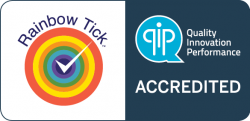
While the COVID-19 pandemic presented some challenges, we have nonetheless made good progress in the past year, including:
- Establishing an LGBTIQ+ stakeholder reference group to shape our work and mature our inclusive practice
- Joining the National LGBTI PHN Working Group to see how LGBTI health organisations can inform PHN needs assessments and increase staff awareness of LGBTIQ+ health priorities and culturally safe practice
- Beginning to develop a localised Transgender Health and Gender Diversity Health Pathway to help clinical staff provide safe and appropriate health care to trans and gender diverse communities
- Providing advice to stakeholders (including other PHNs) seeking to undertake Rainbow Tick accreditation
A pathway to safe, appropriate and inclusive healthcare
Recognising the need for trans, gender diverse and non-binary (TGDNB) people to access appropriate and inclusive healthcare, our HeathPathways WA team is developing a Transgender Health and Gender Diversity HealthPathway working closely with local subject matter experts (SMEs).
A HealthPathways working group including consumer representatives, specialist clinicians and GPs originally identified significant issues and gaps relating to the care of TGDNB individuals within primary care and specialist settings. These issues will be addressed within the new pathway.


The pathway’s development has continued with eight SMEs, including consumer representatives and specialist clinicians working with both child and adolescent TGDNB individuals and adult TGDNB individuals.
GPs receive very little training on TGDNB health care, and the pathway aims to improve both the health of TGDNB individuals, and the healthcare provided to them. It will provide advice on creating welcoming and inclusive clinical environments for TGDNB individuals, it will outline how to assess and manage TGDNB individuals of all ages and it will include local referral pathways for specialist services.
The HealthPathway aims to address the significant barriers TGDNB individuals face in accessing healthcare related to gender affirmation as well as general health care.
HealthPathways GP Clinical Editor Dr Irene Dolan said that HealthPathways does not typically work with consumers as SMEs, however for this pathway it was felt that consumer input was essential.
“We have been very fortunate to work with such knowledgeable and engaged consumer representatives, whose depth of knowledge and insight have been key to developing a pathway which addresses the complexities faced by TGDNB individuals when accessing health care.”
The pathway, which is currently in second draft following feedback from the SMEs, is based on national and international guidelines. After the second draft is reviewed by SMEs, it will progress to a process of consultation through the Department of Health. Once the final feedback has been reviewed and incorporated, it will be published on the HealthPathways WA website.

Lived experience informs diversity
Convened in March, our LGBTIQ+ Stakeholder Reference Group is a cornerstone of WAPHA’s commitment to diversity and inclusion.
Comprising community members, service sector leaders and health professionals, the group has been providing input and insight to inform the development and delivery of our Rainbow Tick Quality Improvement Plan and ensuring lived experience voices inform and shape our work.
Metropolitan Community Advisory Council members, Bella Broadway and Sandra Norman, co-chair the group.
Current priorities include:
- Reviewing our Rainbow Tick Quality Improvement Plan (which outlines actions for the whole organisation to progress to ensure LGBTIQ+ inclusive practice is adopted and integrated into operations and culture) and prioritising actions
- Providing feedback on bowel, breast and cervical cancer screening campaign resources coordinated by North Metropolitan Health Service to ensure they are informed by lived experience and are appropriate for LGBTIQ+ communities
- Advising on inclusive data collection across WAPHA internal feedback processes
- Considering and responding to our staff feedback to the Inclusion and Diversity questions within our recent organisation culture survey
- Guiding the creation of a safe and inclusive environment at WAPHA’s new office.
The Reference Group asks us to challenge ourselves to recognise the actions we can take to support a more safe and inclusive primary health care sector:
- Do you know what safe and inclusive care would look and feel like for people who identify as LGBTIQ+ at your service or in your community?
- How is the organisation you work for, or are involved with, providing safe and inclusive care for consumers, carers and families who identify as LGBTIQ+?
- What else can you do to promote and provide safe and inclusive care?
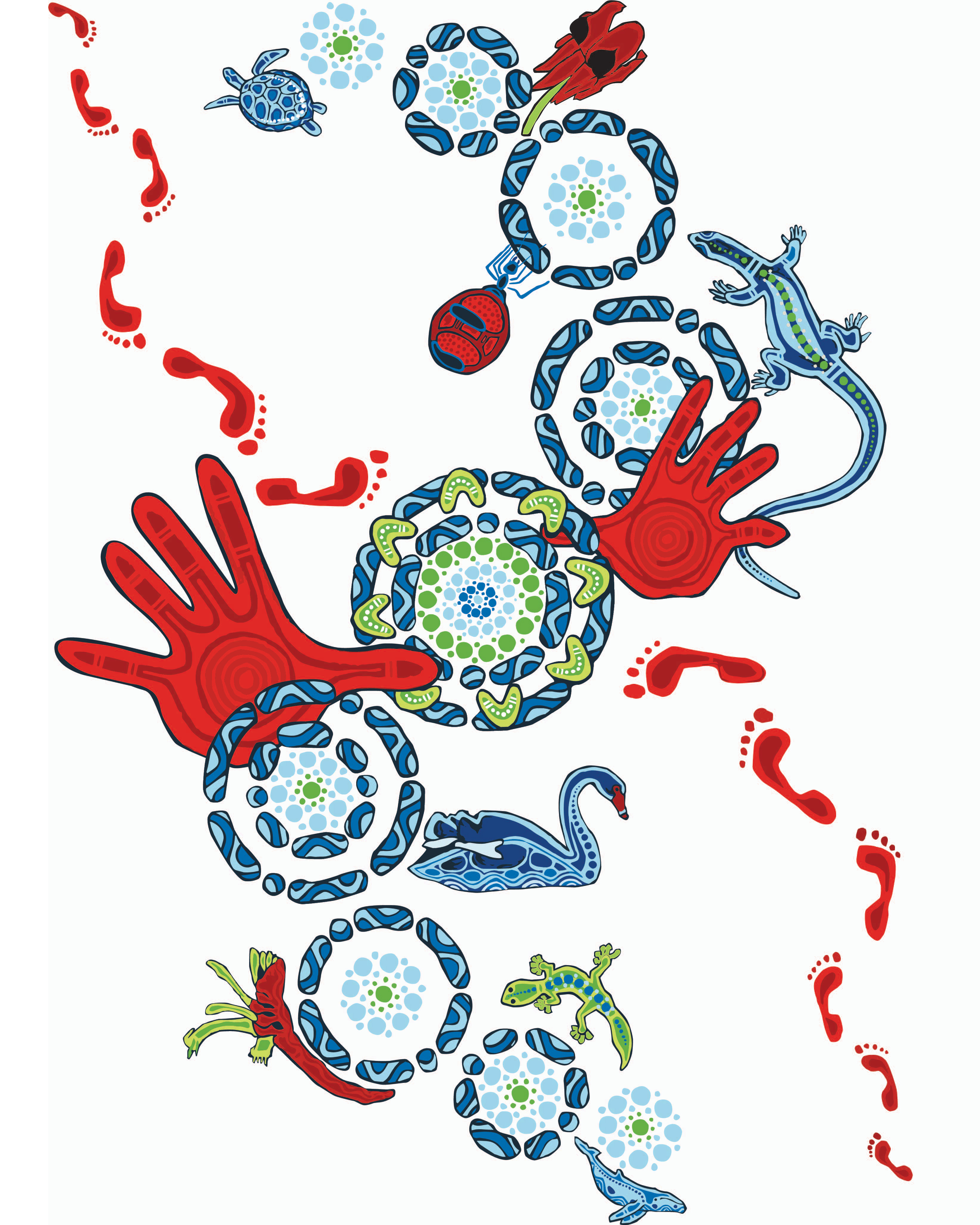
Reconciliation
I pledge to integrate reconciliation into our everyday business and approach – we all have a responsibility to model the way, to take action and lead the way. – WAPHA staff member
I pledge to promote conversations on reconciliation and to learn more about and encourage understanding of the needs of Aboriginal peoples. – WAPHA staff member
During this year, guided by our Reflect RAP, we had several key reconciliation achievements.
- Started work on an Aboriginal Health Priority Strategy;
- Progressed an Aboriginal and Torres Strait Islander Cultural Competency Framework;
- Celebrated significant dates including Sorry Day, National Reconciliation Week and NAIDOC Week; and
- Developed a Vision for Reconciliation, in consultation with our Strategic Aboriginal Health and Wellbeing Advisory Group.
Our Vision for Reconciliation
WA Primary Health Alliance is committed to ongoing, meaningful, and respectful reconciliation, underpinned by genuine collaboration. With an open heart, mind and spirit, we will nurture our relationships with Aboriginal and Torres Strait Islander people, forging a strong connect with place and community. By coming together, we will learn, health and move towards a better, more equitable and opportunity filled future for all Western Australians.
Guided by this, we aim to be bold and aspirational in our commitment towards reconciliation and further build relationships with the Aboriginal communities in which we work and commission services.
We are working on our Innovate RAP which will direct our approach to our Aboriginal health, Aboriginal employment and procurement, a cultural competency framework, cultural awareness and learning, empowerment, and diversity and inclusion.
Don’t get stuck in heavy traffic at an emergency department this summer
We ran a successful community awareness campaign over the summer holiday period to promote the GP Urgent Care Network Pilot and encourage people to see a GP for urgent care, rather than visit an emergency department.
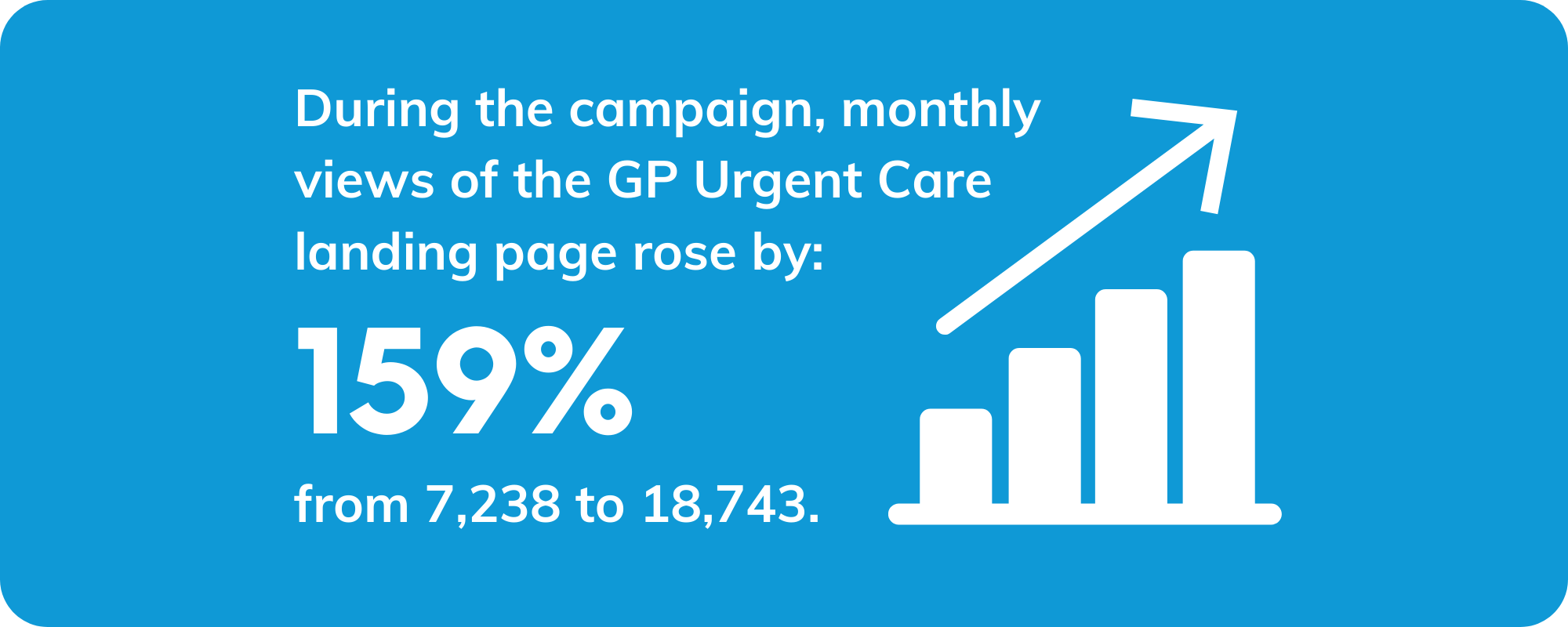
The successful campaign aired on TV, print media, billboards, service stations, beach surf rescue buildings, Perth train station and Yagan Square.
A joint initiative of the Department of Health WA and WAPHA, the Pilot aims to reduce pressure on hospital emergency departments by using unfilled appointments in participating general practices.
Healthy Weight Action Plan
As a key partner in the WA Healthy Weight Action Plan, WAPHA is working on initiatives to address weight management in primary care, through supporting GPs to provide options for patients wanting to make changes to their health.
One of the initiatives is a website housing a suite of tools, resources and education to assist primary care clinicians in providing person-centred assessment, intervention and support services, to facilitate the early intervention and management of those living in larger bodies.

Achievements this year, include:
- Collaborated with Department of Health WELL Collaborative and Health Consumers Council as partners of the WA Healthy Weight Action Plan;
- Designed and built a ‘Healthy Weight Hub’ website and, commissioned Diabetes WA to design a GP education package to be housed within the website, both yet to be launched;
- Co-commissioned with WA Department of Health the Curtin University Healthy Weight Action Plan to develop a multi-criteria and decision analysis framework. This is to support the commissioning of early intervention and weight management programs and services and is nearing completion; and
- Funded the Diabetes WA Total Meal Replacement trial – results yet to be published.
My Community Directory Goldfields Roadshow
“I have found My Community Directory to be an absolute amazing resource! I’m training new staff in the region and being able to navigate local health services, especially when I have no knowledge of the area, has made my job 1000 times easier”
– Health Professional Networks’ member
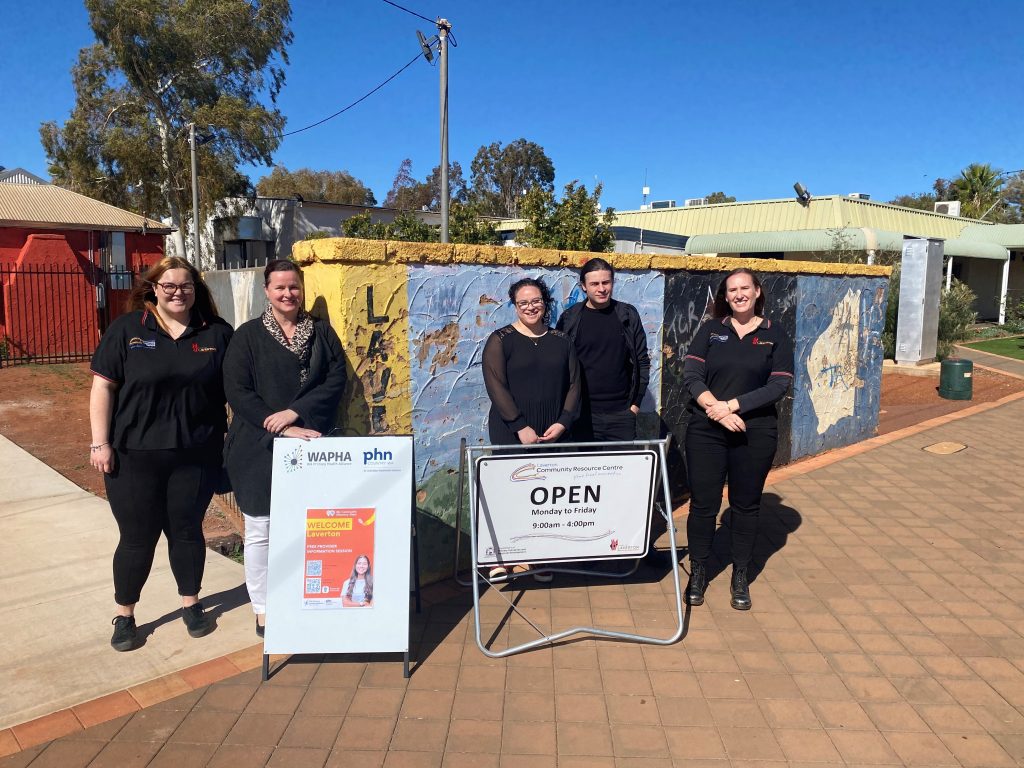
Inside My Mind – One Simple Click
We ran our Inside My Mind campaign for the fourth and final time, as part of the Suicide Prevention Trials. The campaign featured a shift in creative to refresh our message in the Trial Site communities. The aim was to encourage behaviour change by helping people overcome barriers to seeking help.
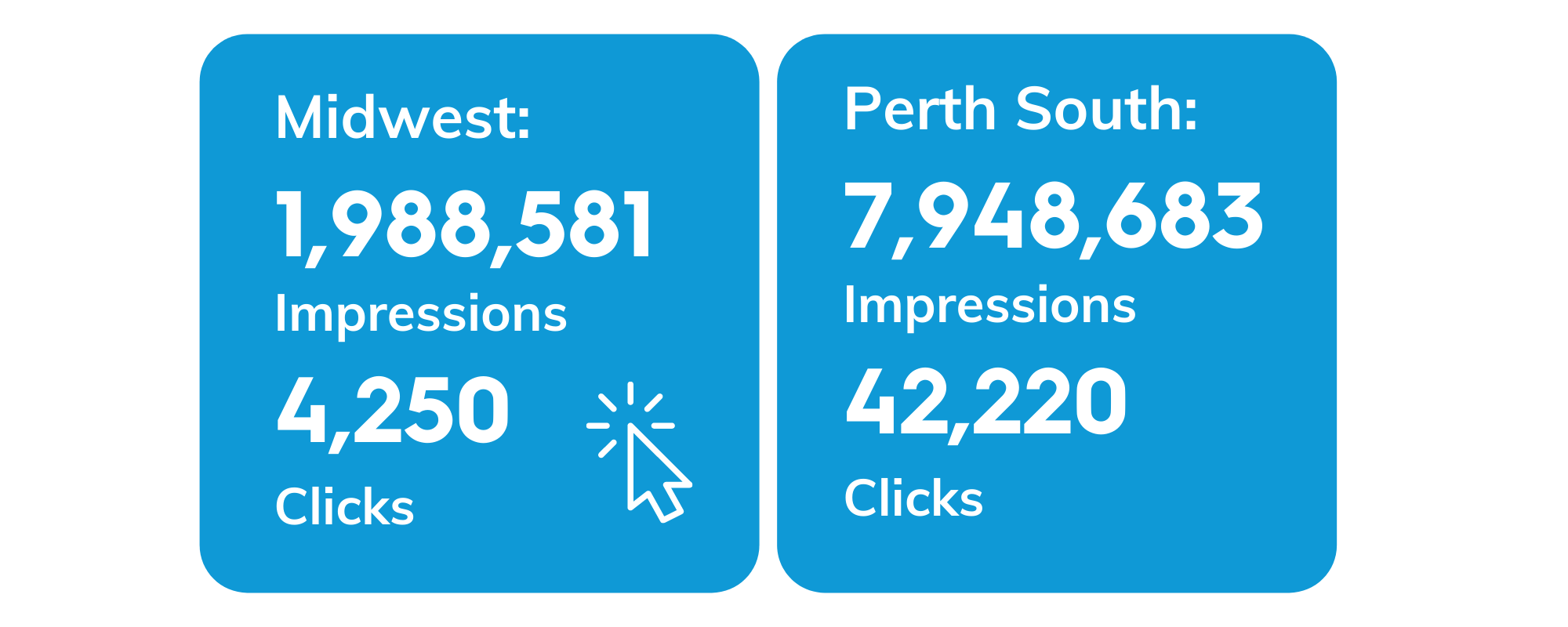
The campaign was one of our most successful to date.
Our learning over the course of the campaign was behind this success, as we understood what our audience responded to and which platforms were best to reach them on.
